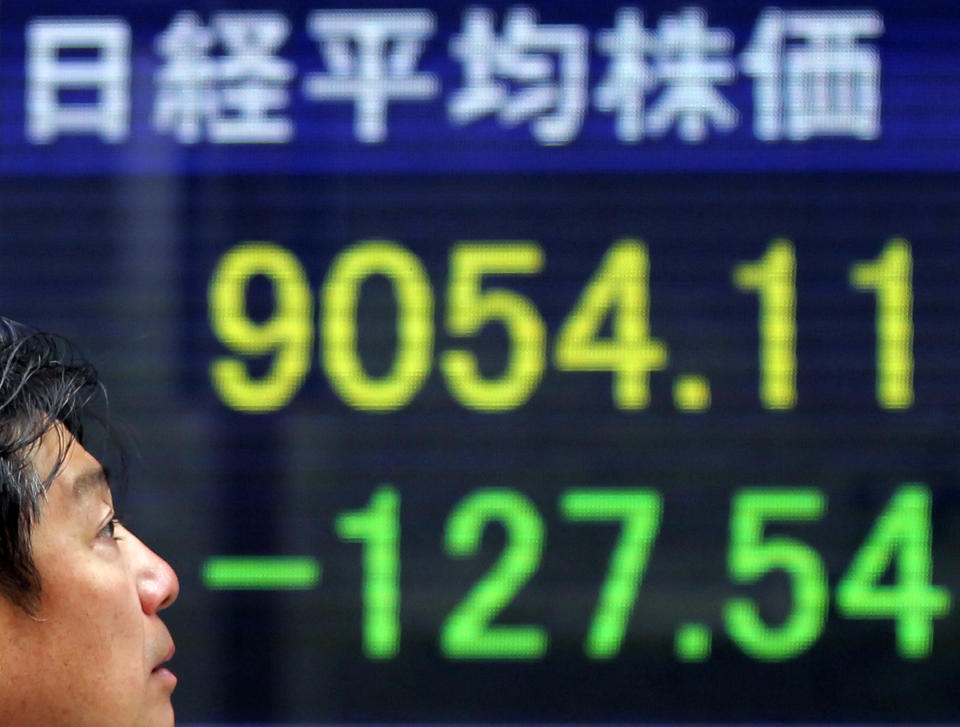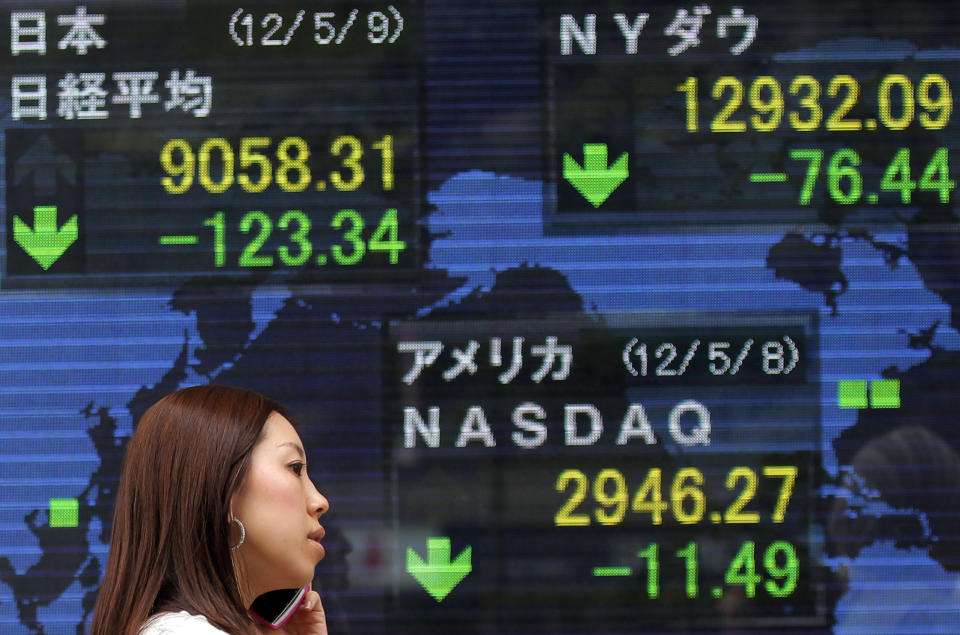Greek political turmoil haunts markets
LONDON (AP) — The political turmoil in Greece after inconclusive elections weighed heavy on markets once again Wednesday with investors increasingly concerned that the country may be forced out of the euro within months.
Following Sunday's election, in which Greece's main parties were punished for supporting the country's international bailout, analysts doubt a government can be formed. After the conservative New Democracy failed to muster enough support to form a government, the mandate has passed onto Syriza, a left-wing party that came a shock second in the election.
Its leader Alexis Tsipras has said that Greece should no longer be bound by its promises to cut spending sharply. But a failure to keep those promises could see international lenders cut off rescue funding. That would likely lead Greece to default — and to the exit door of the euro common currency.
Tsipras is not expected to be able to form a government and most observers think a second election will be called for next month.
The uncertainty surrounding Greece has hurt investor sentiment all week and remained the market's focus Wednesday. In Athens, the main stock index was down another 0.9 percent to near a 20-year low.
"We do not think global equity markets will react favorably to the scheduling of additional Greek elections which themselves are just as likely to be as inconclusive as the previous elections," said Dan Greenhaus, chief global strategist at BTIG.
In Europe, the FTSE 100 index of leading British shares closed down 0.4 percent at 5,530.05 while the CAC-40 in France fell 0.2 percent to 3,118.65. Germany's DAX managed to eke out a 0.5 percent gain to end at 6,475.31.
Fears that the Greek political situation will become increasingly unstable have raised fears that Europe's debt crisis will worsen in coming months and that has intensified the market pressure on Spain and Italy.
"Political uncertainty within Greece does raise the threat of increased contagion within the eurozone's more vulnerable bond markets," said Jane Foley, an analyst at Rabobank International.
Spain's IBEX index closed down 2.8 percent while the yield on the ten-year Spanish bond was up 0.19 percentage points at 5.97 percent. Italy's FTSE MIB index ended 1.1 percent lower while its ten-year yield rose 0.20 percentage points to 5.57 percent.
Those rates are considered manageable, for now, but it wouldn't take much of an increase for them to be considered unsustainable in the long-run. The problem for Europe is that the cost of bailing out Spain, let alone Italy, may be too much.
The U.S. markets are not immune from these concerns as the future of the eurozone remains, according to most international observers such as the International Monetary Fund, the biggest risk to the global economy.
On Wall Street, the Dow Jones industrial average was down 0.5 percent at 12,866.77 and the broader S&P 500 index fell 0.4 percent to 1,358.45.
The euro has also been under selling pressure all week and was trading near four-month lows against the dollar, down 0.4 percent Wednesday at $1.2954.
Earlier stocks in Asia took a hit following Tuesday's declines elsewhere.
Japan's Nikkei 225 ended down 1.5 percent at 9,045.06, its lowest finish in nearly three months while Hong Kong's Hang Seng fell 0.8 percent to 20,330.64 and South Korea's Kospi lost 0.9 percent to 1,950.29.
Australia's S&P/ASX 200 slipped 0.9 percent to 4,275.10 after falling prices for metals hurt mining shares. Mainland Chinese shares also lost ground. The benchmark Shanghai Composite Index slid 1.7 percent to 2,408.59.
Oil prices remained under pressure amid the uncertainty with the benchmark New York rate down 75 cents at $96.26 a barrel.
____
Pamela Sampson in Bangkok contributed to this report.


